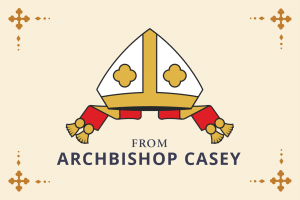On the eve of His passion and death, Jesus took ordinary bread and wine, blessed them, and gave them to His friends as His Body and Blood commanding, “Do this in memory of me.” The next day He offered Himself – Body, Blood, Soul and Divinity – to God the Father for our salvation. Jesus’ offering of Himself in the external form of bread and wine is the same offering He made to the Father on the Cross. The two actions are one single event: the center of salvation history.
The disciples took Jesus’ command to heart and carried out the same actions in His memory. From the earliest days of the Church, Christians have entered into the mystery of the Lord’s saving passion, death, resurrection and ascension each time the Eucharist is celebrated. The Church reminded us of the importance of sharing in the Eucharist at the Second Vatican Council, teaching that “all the faithful should be led to that full, conscious and active participation in liturgical celebrations which is demanded by the very nature of the liturgy” (Sacrosanctum Concilium, 14).
Such participation is not simply external. Pope Emeritus Benedict XVI said, “The active participation called for by the Council must be understood in more substantial terms, on the basis of a greater awareness of the mystery being celebrated and its relationship to daily life” (Sacramentum Caritatis, 52). He went on to state that the Council itself taught, “Offering the immaculate Victim, not only through the hands of the priest but also together with him, they should learn to make an offering of themselves” (Sacrosanctum Concilium, 48).
We often pray at Mass, “May he make of us an eternal offering to you” (Eucharistic Prayer III), asking that the Holy Spirit transform our lives into a sacrifice to the Father. We give everything back to God: all we say, think and do; all for which we are grateful; all we suffer; in short, all that we are. We ask that our lives – through, with and in Christ – may be for the good of all the world.
When we spiritually place our lives on the altar and prayerfully unite ourselves to the offering of Jesus to His Father, our participation in Mass bears more fruit. The Word of God which He speaks to us through the readings has a greater effect on our lives, and the reception of our Lord in Holy Communion more deeply conforms our lives to His and to His Mystical Body, the Church. Our participation at Mass becomes a life-changing encounter with the Lord.
Pope Francis recently offered a beautiful reflection on the gift of such an encounter. “For us a vague memory of the Last Supper would do no good. We need to be present at that Supper, to be able to hear His voice, to eat His Body and to drink His Blood. We need Him. … The salvific power of the sacrifice of Jesus, His every word, His every gesture, glance and feeling reaches us through the celebration of the sacraments. I am Nicodemus, the Samaritan woman at the well, the man possessed by demons at Capernaum, the paralytic in the house of Peter, the sinful woman pardoned, the woman afflicted by hemorrhages, the daughter of Jairus, the blind man of Jericho, Zacchaeus, Lazarus, the thief and Peter both pardoned. The Lord Jesus who dies no more, who lives forever with the signs of His Passion continues to pardon us, to heal us, to save us with the power of the sacraments” (Desiderio Desideravi, 11).
May the Lord help each of us to enter more fully into this inexhaustible gift of the Eucharist every time we go to Mass!



